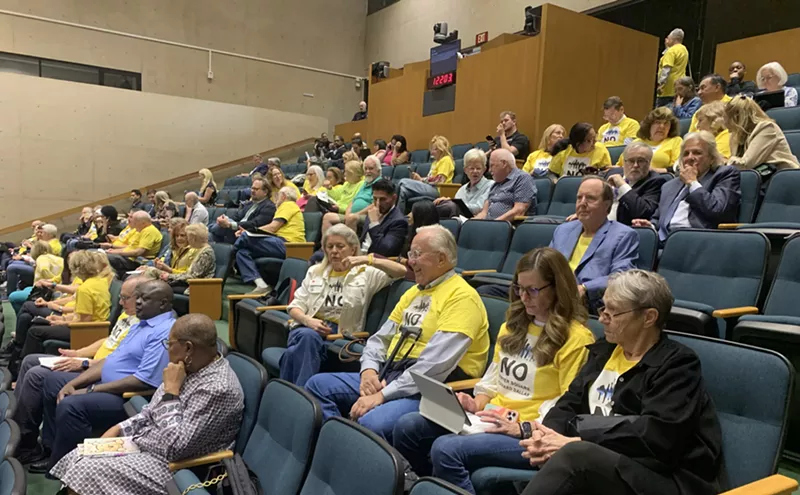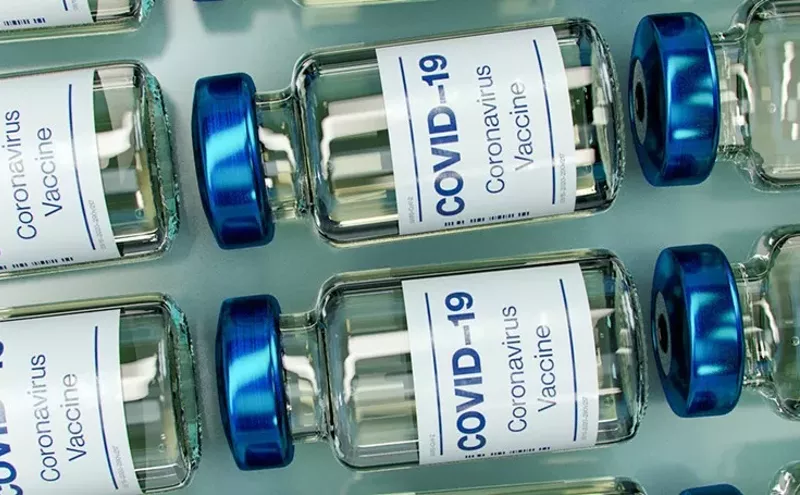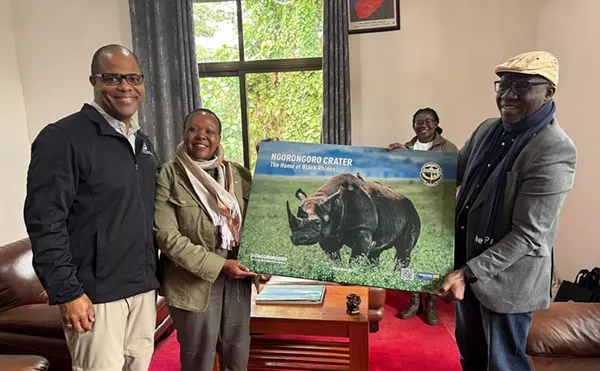This item is a dilation of a comment I posted to yesterday's item about 30th District Congresswoman Eddie Bernice Johnson and the scandal about scholarships and nepotism. It struck me after I posted the comment that maybe I owed the topic a better effort.
In the mid-1980s I interviewed both Johnson and the late Stanley Marcus, impresario extraordinaire of the Neiman Marcus franchise, for a book I was writing on the history of racial politics in Dallas. Marcus told me he had spotted Johnson soon after she came to town from Waco as a smart, attractive, very strong and directed young lady. He decided early on she would make a lot better leader and role-model for black Dallas than the sell-out preachers like S.M. Wright, who were little more than bag men for the white oligarchy.
Johnson gave me her own strange and deeply moving version of her arrival in Dallas in 1956, which I offer here.
"In Waco," she told me back in 1985. "I had never witnessed the kind of extreme separatism I did here. In Waco they had 'Colored' and 'White' signs all over, and there was a history of lynchings. But, in Dallas, the overt racism immediately became clear.
"I had just finished nursing school [at Notre Dame] in South Bend. My father worked for the V.A. in Waco, and two members of the same family couldn't work for the same federal facility, so I applied for a position in Dallas, and they accepted me.
"When I showed up, they were shocked that I was black. They hadn't had any black professionals at all at that time in Dallas. Suddenly all the nurses residences were 'full' and the rest were 'under construction.' I found housing in a rooming house. That was very prevalent among blacks, because there were very few apartment buildings."
She told me about a trip she was making back to South Bend for a friend's wedding. "I was going by train, and I wanted a small collapsible hat to put on my head. We were always raised to buy quality. My parents taught us that, even if you couldn't buy much, you should buy the best, so I went to one of the best stores downtown, A. Harris.
"And I was told that I could not try on hats or shoes. They had to measure my head and then go over and measure the hat."
In fact, she said black people in Dallas could not touch clothing that might later be sold to a white person. They were not allowed even to flip through dresses on a rack. The touch of their fingers alone was enough to make the garment repugnant for a white wearer. It was a level of loathing and a biting humiliation she had not felt anywhere before.
"That was the first realization," she said. "I had never experienced anything like that, even in Waco. But it was that way everywhere in Dallas."
Johnson did not give in to it. She made friends with a white woman who worked at Neiman Marcus. She never gave me her name. I don't remember if I asked. That one sales person, acting on her own, refused to honor any of the primitive white taboos of race. She allowed Johnson to try on clothes as if she were a full-fledged human being.
That sales lady was a hero. But so was Eddie Bernice Johnson.
Years later, Stanley Marcus, who had come to know Johnson, gave her a job at Neiman Marcus on the condition that she run for the legislature. He was a pretty amazing guy for his time -- a merchant prince who didn't need trouble, who nevertheless took very brave confrontational stands against racism. He was part of a cadre of white people in Dallas (Gentiles as well as Jews, if it matters) who risked their own businesses, professions, reputations and family happiness to fight against the racial hatred in the city at the time.
It isn't impossible for us today to imagine what it was like -- what it felt like -- back then. Just pretend that your sister or your mother or your wife, a smart determined lady who has just graduated from a top nursing school, moves to a new city. And they tell her, "You cannot touch clothing that might touch our skin, because you are a physically loathsome being and your touch is repugnant."
Try that one on for size. And don't give me anything about, "It was a way of life." Humiliation was never a way of life. Show me one moment in history when human beings liked being humiliated.
No, think instead of the guts it took for a tiny little nurse-lady in her 20s from Waco to come into this citadel of vicious Jim Crow and insist she was going to buy the best hat in town and by God, she was going to try it on, one way or another. And even that pales, by the way, in comparison with what it took for black people like her and the Rev. Zan Holmes to stand up and say, "I'm going down to Austin to represent this city, and I don't need the white Dallas Citizens Council to tell me I can do it."
On the other hand, they did need the help of white people like Stanley Marcus.
None of this -- none of it -- is intended here as some kind of exoneration for the lady's current troubles. As I said in the comment earlier, yesterday doesn't cover today.
But don't take yesterday away either. As much as there is to be ashamed of in our past, there is a great deal to inspire pride. No matter what kind of mess she's made for herself today, she's still on the record as an important maker of history, as well.












